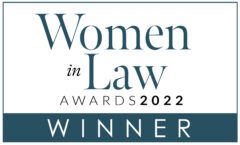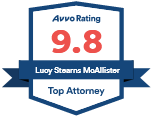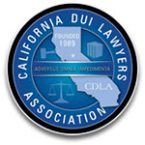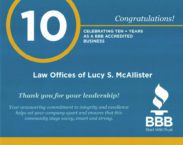California business licenses can be revoked through two primary means; (1) via Administrative Law by triggering an investigation as the result of a consumer complaint to the California Department of Consumer Affairs and (2) via Criminal Law when CA Peace Officers conduct criminal investigations against a business’s license.
Administrative Law Civil Violations by California Business Licensees
The California Department of Consumer Affairs will immediately initiate an investigation of a business licensee as the result of just one consumer’s charge of inappropriate conduct on the part of a business.
At the conclusion of a California Business Licensing Board investigation, the Board has 4 options:
- Close the Complaint
- Issue a Citation and recommend probation or disciplinary action
- Refer the matter to the California Attorney General’s Office who will decide whether to file a formal disciplinary Accusation
- Refer the case to the District Attorney’s Office for criminal prosecution
If an Accusation is filed by the Attorney General’s Office, the business license is in serious jeopardy of being revoked. Business licensees have 15 days from the date that the Accusation is served on them to file a Notice of Defense. Failure to do this on a timely basis will result in default and the immediate revocation of the California Business license.
If your business has received an Accusation, you need to immediately retain an experienced licensing law attorney to represent you and help you prepare a strong case. The California Administrative Law disciplinary process is complex, procedural and time consuming and Administrative Law Due Process Rights differ substantially from the Due Process Rights accorded in criminal law. Because of this, a lawyer with both Administrative Law and Criminal Law experience such as our attorneys at Lucy McAllister Licensing Law can be instrumental in helping you navigate through these important legal nuances.
We can work to try to negotiate on your behalf with the Attorney General’s Office and your California Licensing Board and try to reach a Stipulated Agreement (settlement agreement). If a Stipulated Agreement cannot be negotiated successfully, we can also help you prepare for your hearing before the California Office of Administrative Hearings (OAH). An Administrative Law Hearing is a formal Hearing before an Administrative Law Judge.
Following the Administrative Law Judge’s decision, a licensing board may adopt, modify or reject the judge’s decision. The only appeal rights to the Licensing Board’s final decision and order are a Petition for Reconsideration prior to the effective date of the decision or licensees can use a Petition for Writ of Mandamus (in Superior Court) within 30 days of the decision.
Criminal Law Business License Defense: Violations of Administrative Law From Criminal Charges
California business licenses can also be at risk due to disciplinary licensee Investigations which spring from criminal activity sting operations, referrals as the result of criminal convictions and criminal complaint investigations. The California Department of Consumer Affairs uses sworn Peace Officer Investigators to conduct criminal investigations against Business licensees.
Failure to disclose criminal convictions can also trigger Administrative Law violations if these charges are “substantially related to the duties, functions and qualifications of the respective Business licensee”. Common criminal convictions which can cause licensee violations of Administrative Law include:
- Altering or Forging a Prescription
- Assault with a Deadly Weapon
- Battery
- Brandishing a Firearm
- Burglary
- Carrying a Concealed Weapon
- Child Abuse
- Child Endangerment
- Diverting a Controlled Substance
- Domestic Violence
- DUI
- Elder Abuse
- False Imprisonment
- Forgery
- Fraud
- Hit & Run
- Identity Theft
- Insurance Fraud
- Medicare Fraud
- Mortgage Fraud
- Possession for Sale of a Controlled Substance
- Possession of a Controlled Substance
- Public Intoxication
- Real Estate Fraud
- Robbery
- Sex Offenses
- Theft
- Trespass
- Vandalism
- Vehicular Manslaughter
In addition, licensees being prosecuted in Criminal Court, can result in California Penal Code § 23 Orders against a California business licensee. Such a California Penal Code Order seeks to suspend a Business License in Criminal Court.
California Business Licensees with investigations due to failure to disclose criminal convictions and those facing criminal charges should immediately retain the services of an experienced California defense attorney with a background in both Criminal Law as well as Administrative Law. How a criminal case is handled can dramatically impact the licensing case for a defendant.
If you are a California Business Licensee who has received a notice of investigation letter or an Accusation, you should contact the Law Offices of Lucy S. McAllister. Our experienced team of attorneys are experts in both Administrative AND Criminal Law and we can work with you to negotiate on your behalf with the State Attorney General’s Office and your licensing board.
We represent the following California business license clients:
- Adult Residential Facilities
- Assisted Living Facilities
- Automotive Repair Dealers
- Day Care Operators
- Foster Family Homes
- Home Care Organizations
- Hospitals
- Moving Companies
- Nail Salons
- Nursing Homes and Skilled Nursing Facilities
- Social Rehabilitation Facility
- Smog Check Stations
- Substance Abuse Treatment Centers
For additional information or to schedule a consultation, please contact our California-wide law offices today at (877) 280-9944.












